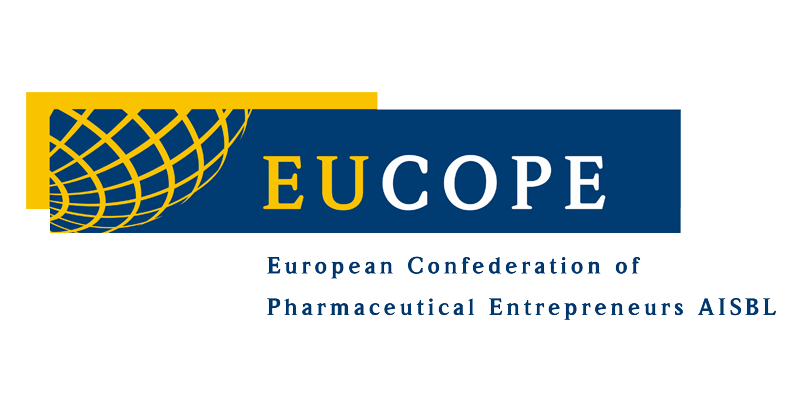The EU has long been committed to ensuring access to high-quality healthcare services and medicines for its citizens. This commitment is enshrined in the EU Treaty and is further reinforced through various directives and regulations. Among recent developments the European Commission has released a revised “Pharma Package” which may offer an improved legislative basis to allow patients, including those affected with rare or ultra-rare diseases, to access effective medicines more optimally, which is not only a matter of public health but also a fundamental human right.
However, patients living in the EU, especially those with rare diseases, are still currently facing challenges to access to care or simply to have a medicine that can improve - if not cure their condition and/or quality of life. And we well know that for some existing therapeutics, patients have no other alternative than travelling out of the EU to receive the specific medicine or treatment they would need and strongly benefit from. When no therapy exists, patients may be lucky to get access to an on-going clinical trial.
Therefore, fostering innovation is vital for the EU patient community and certainly, among the diverse stakeholders involved in having the EU keeping as a champion in health innovation, small to medium pharmaceutical companies can bring significant value. The COVID-19 pandemic has brought an excellent example of how cooperation between diverse stakeholders can speed up research and development. Several startups were working on cutting-edge vaccine platforms, such as mRNA technology. Large pharmaceutical companies thanks to their resources, expertise, and infrastructure were able to scale up research and development efforts quickly. They also have established relationships with regulatory agencies, which were essential for vaccine approval. By partnering, these stakeholders led the innovative approach into accelerated vaccine development process which saved thousands of lives.
Rare diseases are characterised by their complex and diverse nature, often requiring tailored solutions. Smaller pharmaceutical companies often specialise in niche therapeutic areas, or rare diseases and often bring innovative ideas and technologies to the table, which may also contribute to treatment of more common disorders. Collaborating with patient groups allows these companies to gain deep insights into the specific needs, challenges, and priorities of the patient community they aim to serve. This specialised focus enhances the likelihood of successful drug development.
Smaller pharmaceutical companies can design therapies that are effective and aligned with patient needs, by actively involving patients in the drug development process, who will provide valuable input on disease manifestations, symptom management, and treatment preferences as well as facilitating the recruitment of participants for clinical trials, which can be challenging for rare diseases due to the limited patient pool. This accelerates the research process and expedites the development of potential treatments.
Small and medium pharmaceutical companies can be valuable partners to patient groups in several ways. While they may not have the vast resources and reach of large pharmaceutical corporations, they often possess unique skills and expertise that can contribute to better informed decision making and strengthen multistakeholder efforts towards better access to patient centered care.
Smaller pharmaceutical companies often specialise in niche therapeutic areas, or rare diseases and often bring innovative ideas and technologies to the table, which may also contribute to treatment of more common disorders.
This is why we need a pharma framework for the upcoming two decades that will allow all the stakeholders with their specificity to take part in the efforts needed to develop innovation in a patient centered approach, so as to preserve and strengthen the EU’s sovereignty in medicine and health care. We also need this framework to offer enough flexibility to adapt and overcome any disruption that may happen in the scientific and medical fields. These disruptions are not always easy to forecast but small and medium pharmaceutical companies can have a major role to play in this changing context.
In summary, small and medium pharmaceutical companies can be valuable partners for patient groups by offering specialised expertise, fostering collaboration, and tailoring their efforts to meet the unique needs of patients with specific conditions. Their agility, patient- centered approach, and willingness to engage with patient groups and their stakeholders can contribute significantly to improving the lives of patients and advancing medical research. And thereof, building a strong European Health Union.
In partnership with

This article was produced in partnership with EUCOPE. For 15 years, the European Confederation of Pharmaceutical Entrepreneurs (EUCOPE) has been the voice of small and mid-sized health technology companies in Europe. Representing 2600+ biopharmaceutical companies directly or through national associations, EUCOPE advocates for sound public policy that supports innovation, while fostering a community built on a shared purpose: improving and saving the lives of European patients through ground-breaking therapies and medical technology. www.eucope.org
Sign up to The Parliament's weekly newsletter
Every Friday our editorial team goes behind the headlines to offer insight and analysis on the key stories driving the EU agenda. Subscribe for free here.